Table of contents
- SERP Volatility Checker & Tools
- Conclusion
Do you know this: You sit down at the computer in the morning, open Sistrix and are shocked that the visibility of your website has fallen. The big question: "What was the reason?" (If you don't know, then quickly
educate yourself in 32 seconds).
Before you panic, you should first check whether the daily fluctuations are normal or above average noticeable. It may well be that the entire SEO market is currently agitated and the ranking volatility is high. If that is the case, then the decreased visibility can also be related to it.
Here you will find a list of possible contacts that you should check to find out whether any ranking fluctuations are due to overarching shifts in the
SERPs or if there is a problem with your website.
The following websites or SEO tools check the general ranking changes daily. All linked checkers are free and can be accessed without registration:
Semrush Sensor
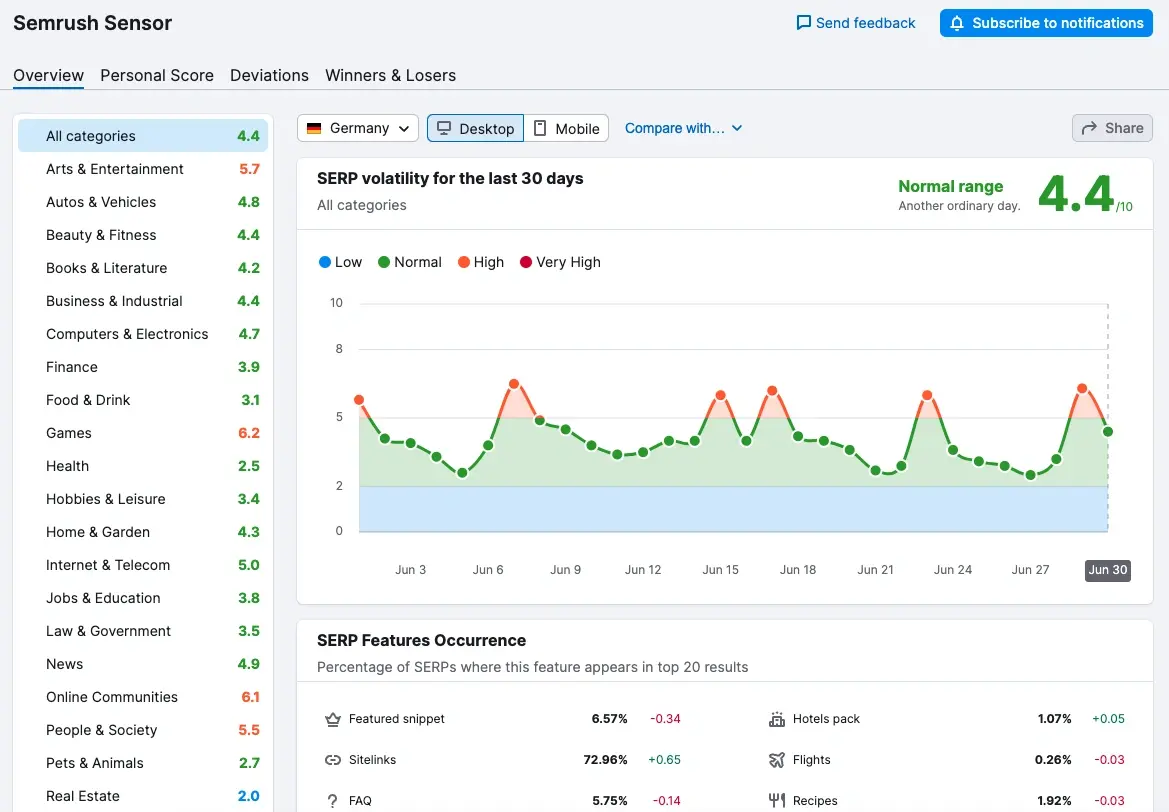
The best usually comes at the end - not in this article. The SEO tool Semrush
(Jetzt kostenlos testen) provides probably the best SERP change monitoring tool with the Semrush Sensor. At least the setting options are more comprehensive than all other providers you can find below. With the Semrush Sensor, you can choose 8 other countries in addition to Germany, differentiate between desktop and mobile rankings, and... filter by industry! Especially the latter is a unique selling point, which is helpful, because Google updates are now also topic-related (e.g. YMYL Keywords). Accordingly, this distinction helps to understand how volatile the current industry rankings are.
Google Update Radar by Sistrix
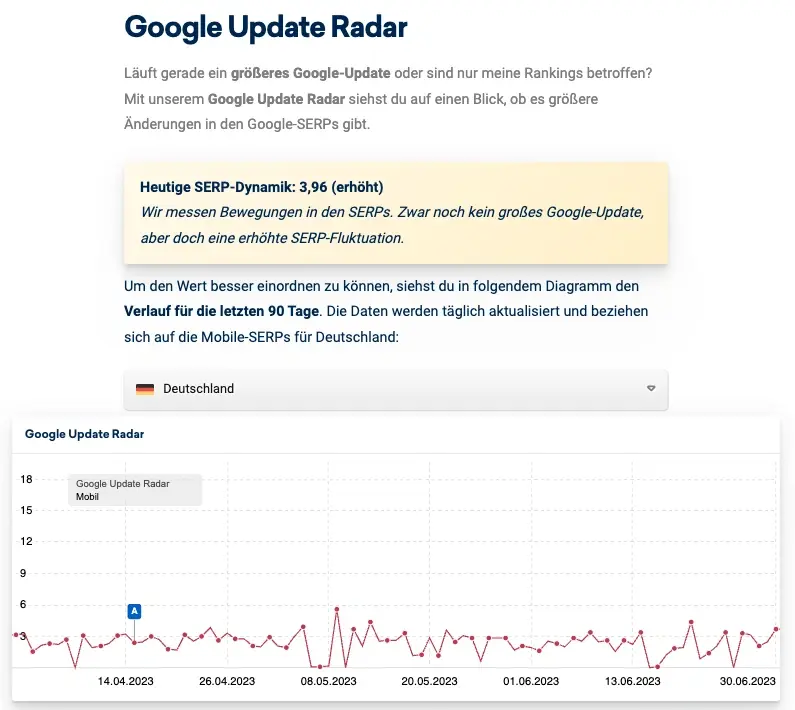
The German SEO tool Sistrix also offers a volatility check called Google Update Radar. The graphical representation is bad compared to many other tools, but the data basis is probably one of the best worldwide with millions of verified keywords - especially if you do SEO for German keywords.
Google Grump by AccuRanker
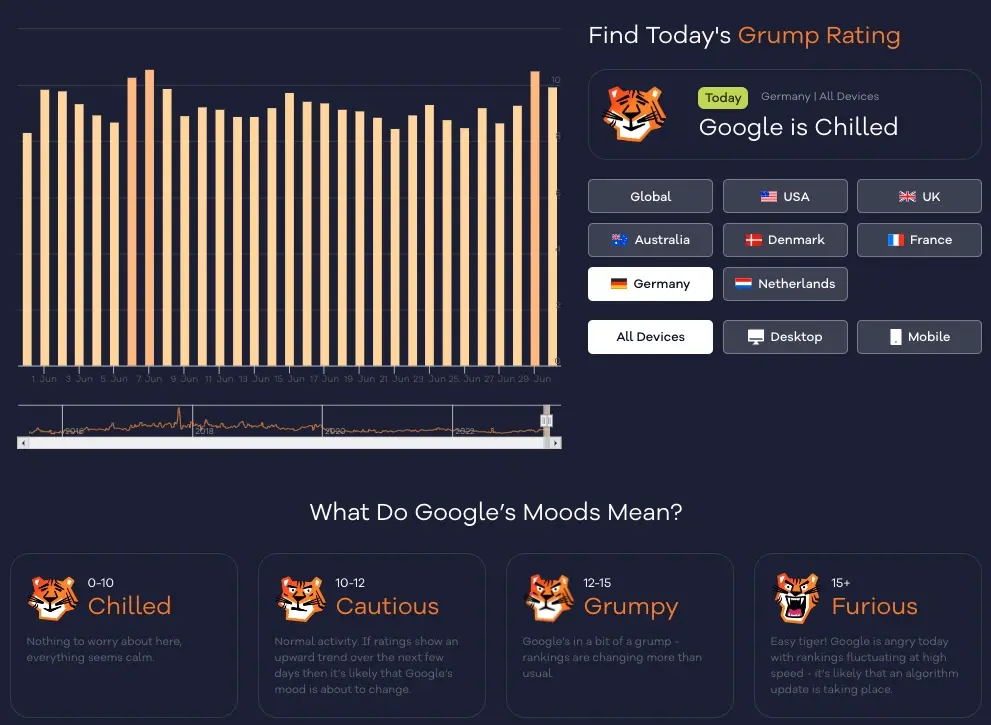
The Grump from AccuRanker shows the volatility to the lecture not only for Germany, but also for 6 other countries as well as globally. Furthermore, you can also specifically check the data for Mobile and Desktop.
SERP Volatility by Mangools
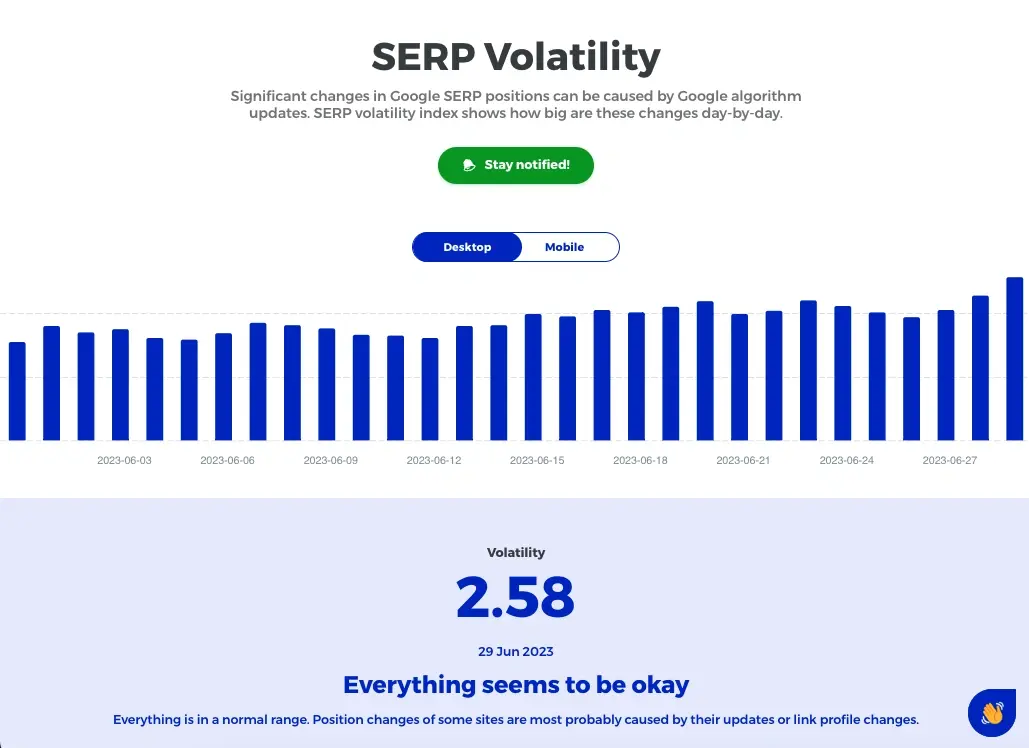
The SEO tool Mangools offers an overview of the current volatility of their global keyword set of more than 3.5 million keywords (status: 30.06.2023). It is possible to distinguish between desktop and mobile; unfortunately, individual countries cannot be selected.
MozCast
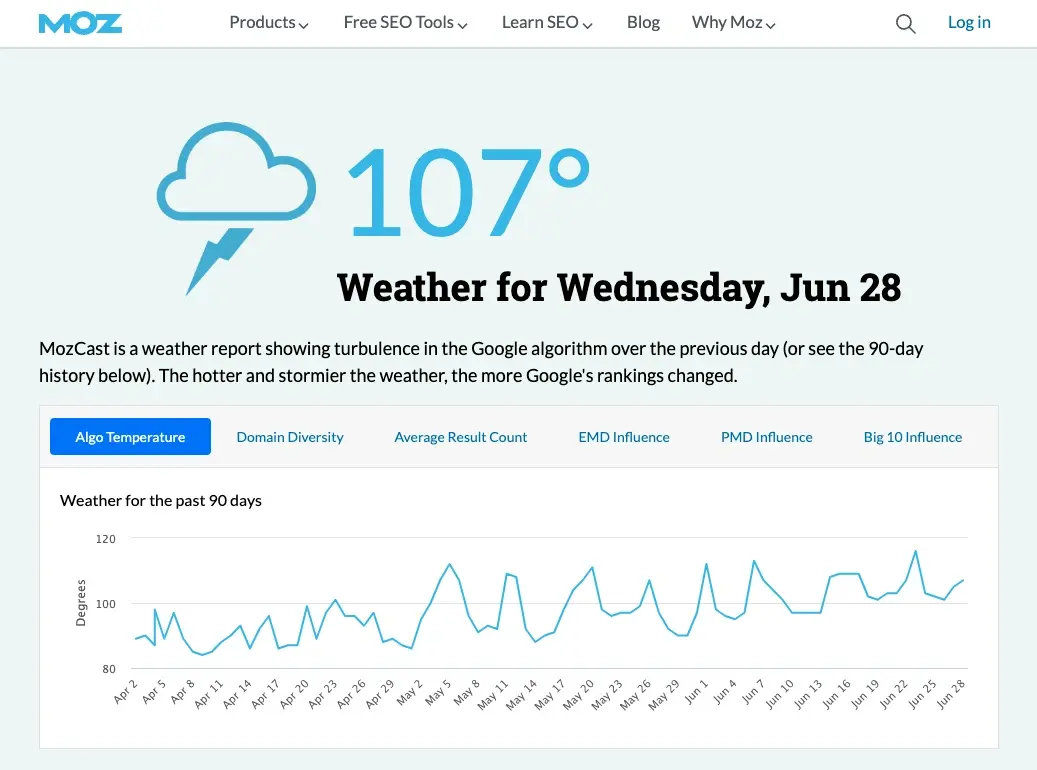
The MozCast, named after the SEO tool Moz, gives the search results page fluctuations in the form of a weather report: the hotter the weather report, the more turbulent it was in the SERPs.
Rank Risk Index by RankRanger
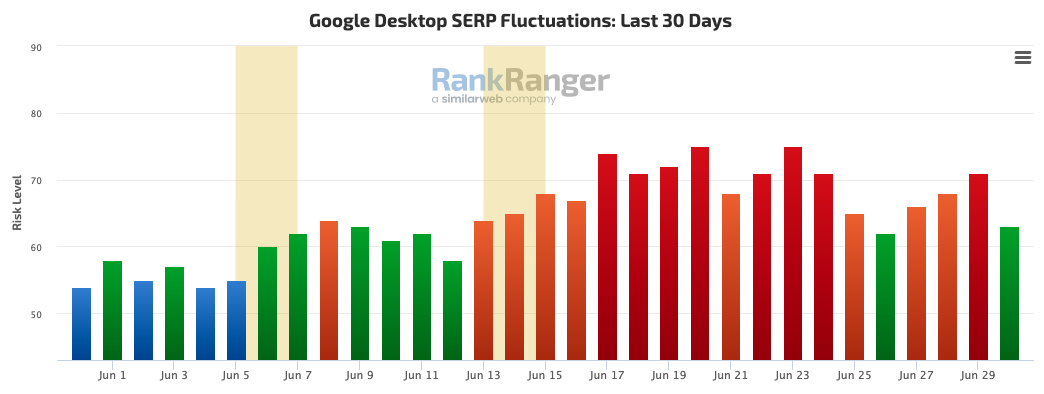
The Rank Risk Index by RankRanger checks the daily ranking differences of over 10,000 domains and keywords. Here, a distinction is made between desktop and mobile rankings - but that's about it.
CognitiveSEO Signals
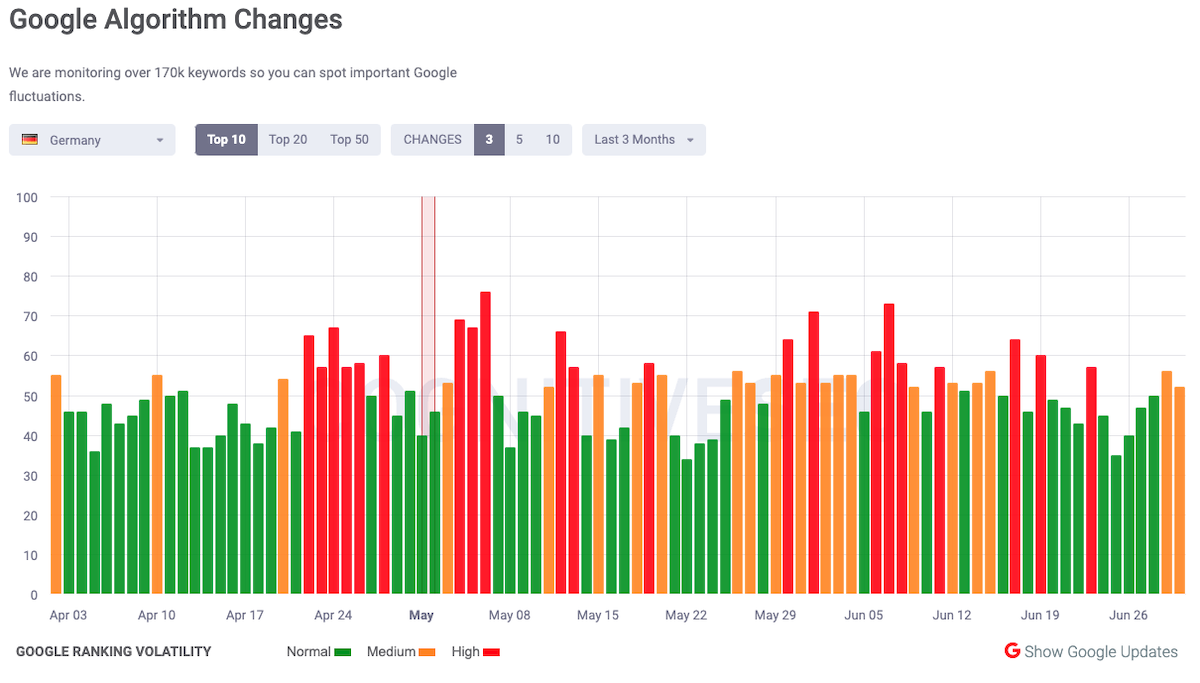
At CognitiveSEO, there is a volatility checker that can be set even more granularly. For example, you can not only choose the appropriate country, but also determine whether calculation should only be for the Top10, Top20 or Top50 and with what intensity (3, 5 or 10).
Conclusion
The various SERP Volatility Tools can help you more or less to better classify the current Google ranking shifts. Especially updates, which Google does not officially announce, are often already recognized by the tools and then confirmed a few days later. Since all checkers can be accessed for free, you should simply save the links in a folder in your browser, so you can find them easily again when you need them.